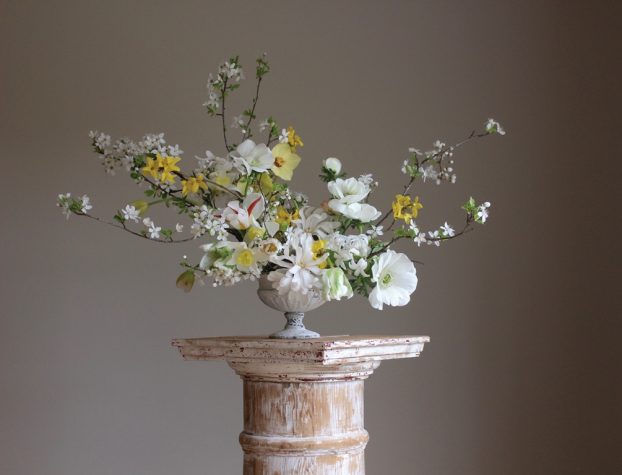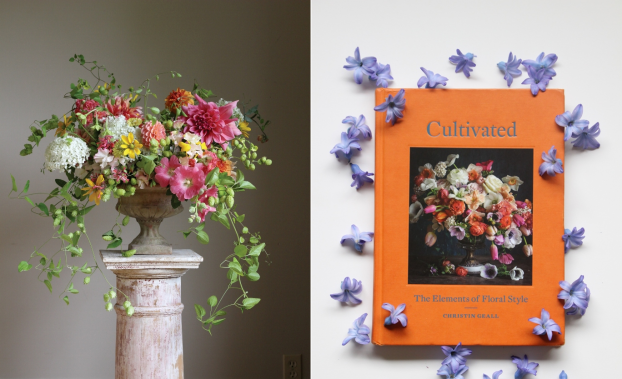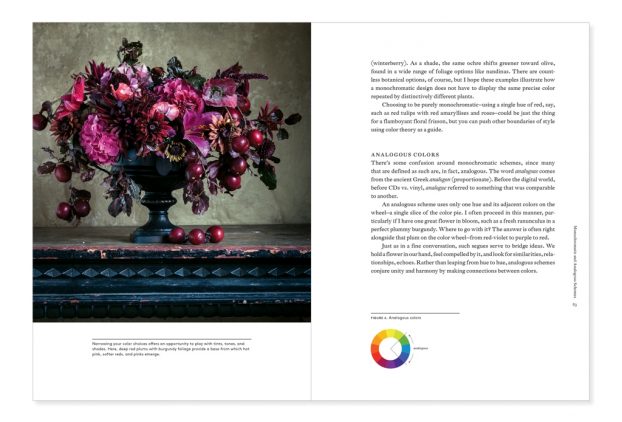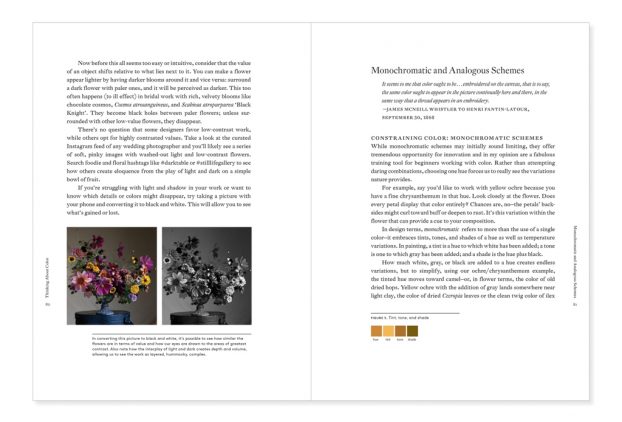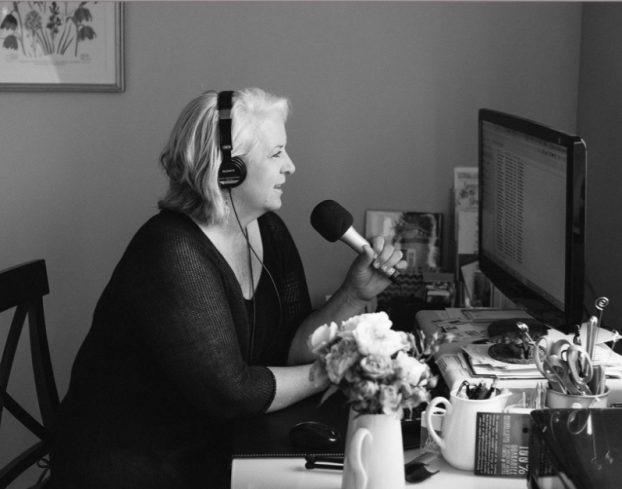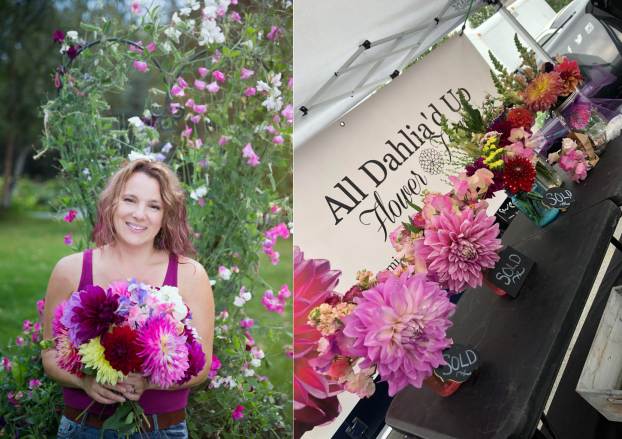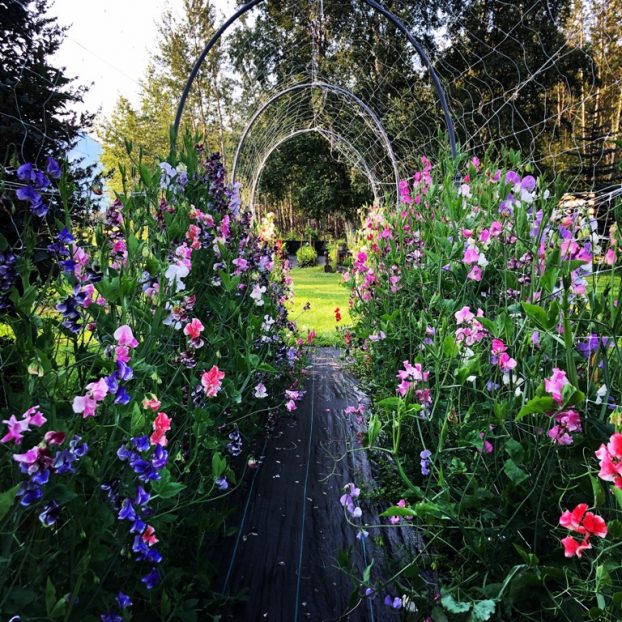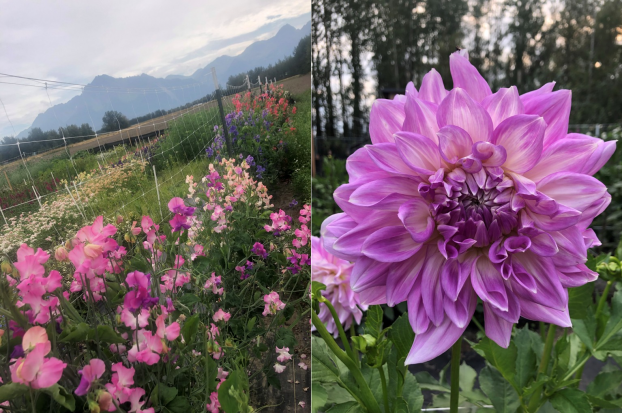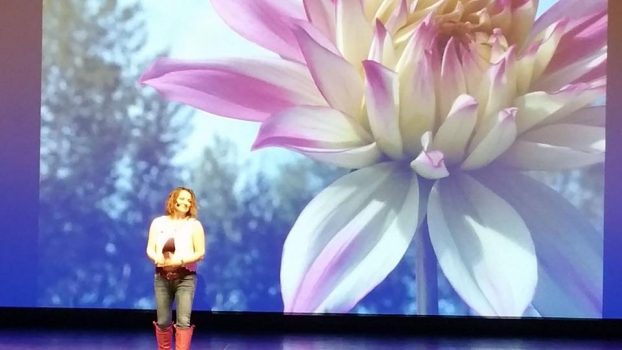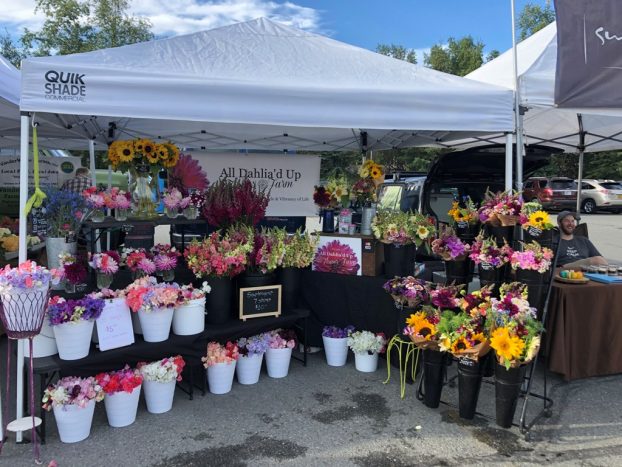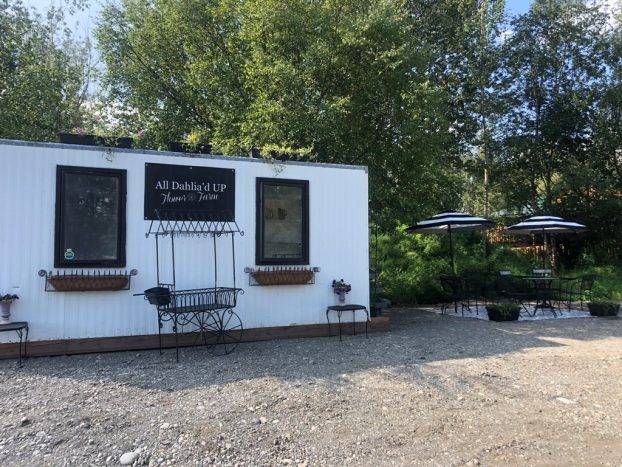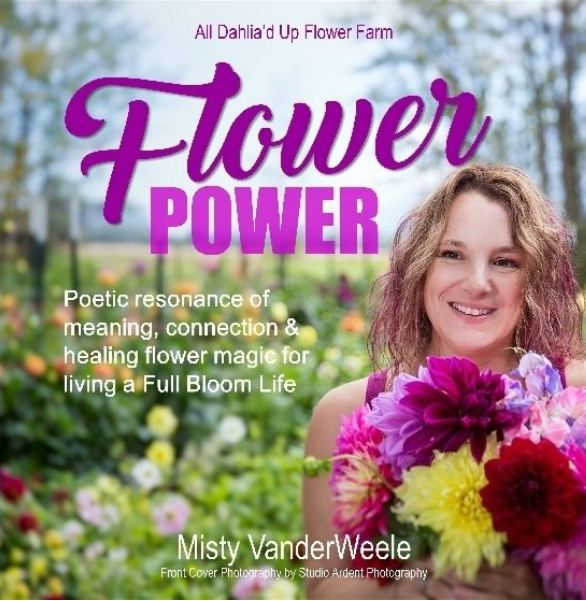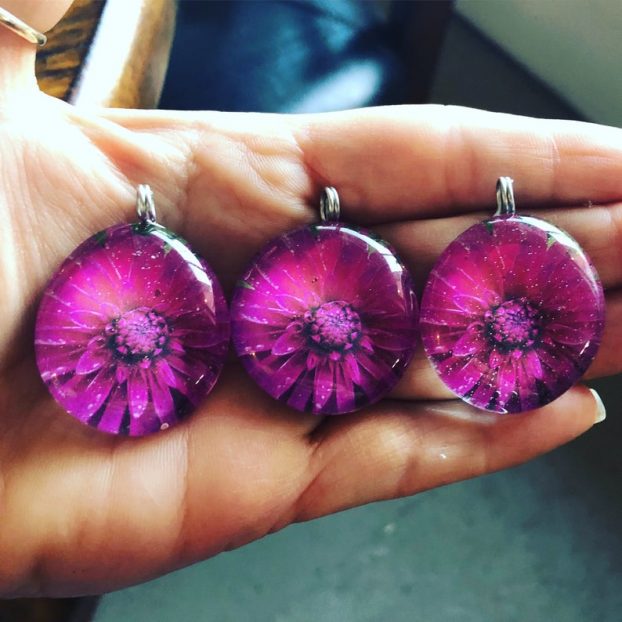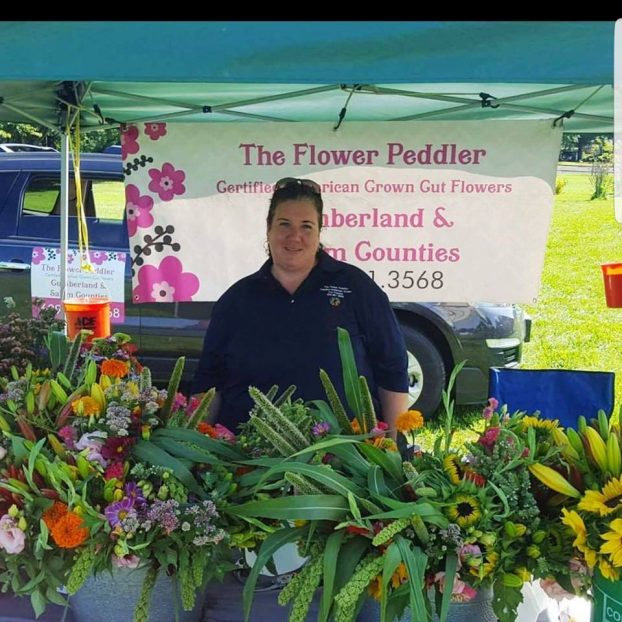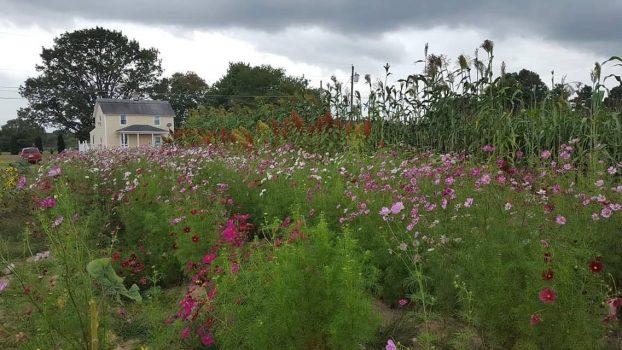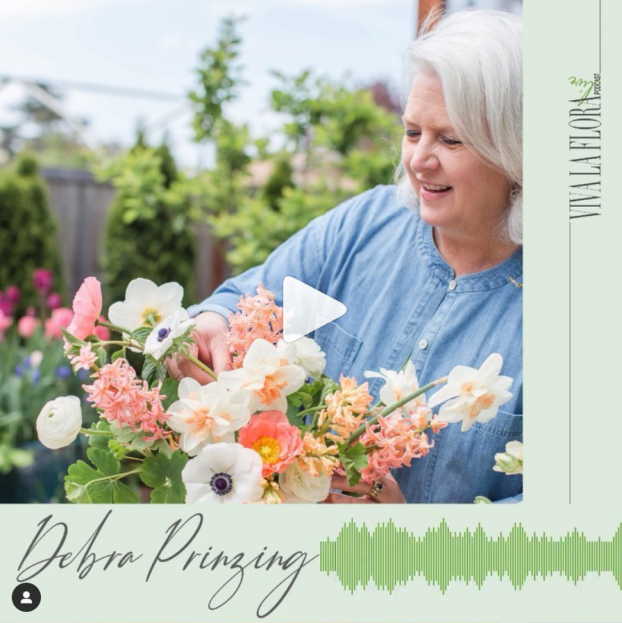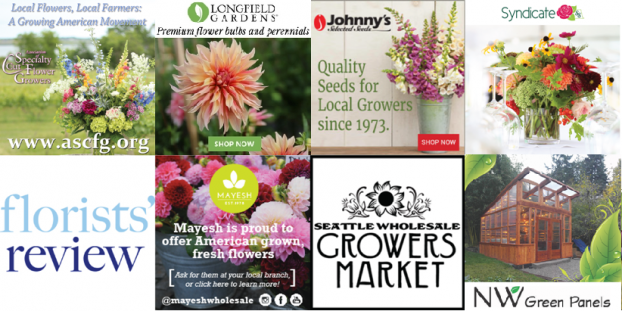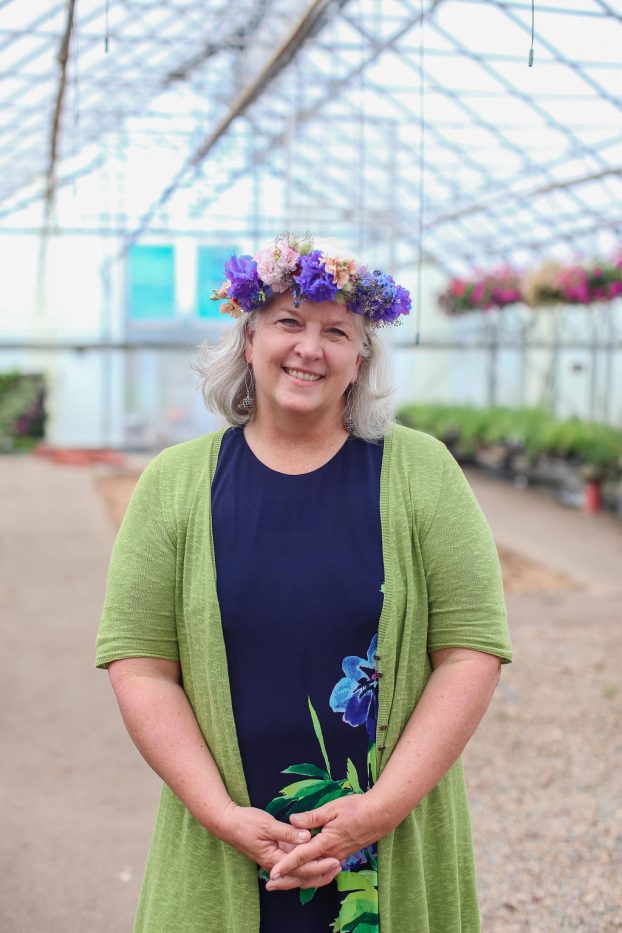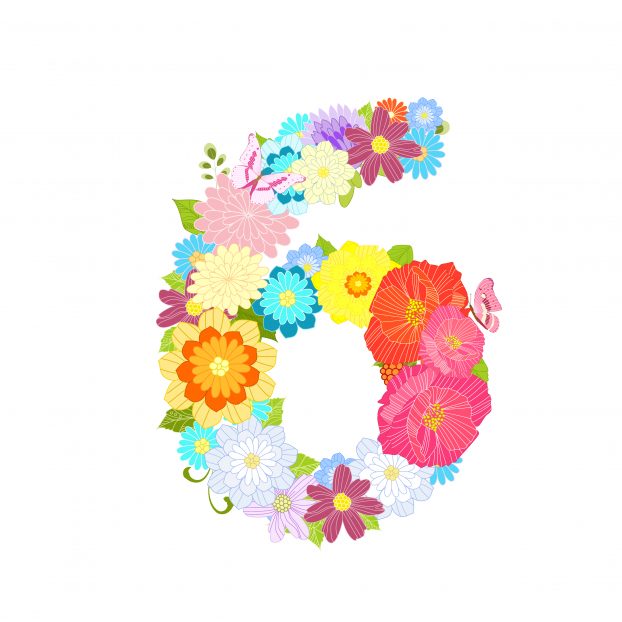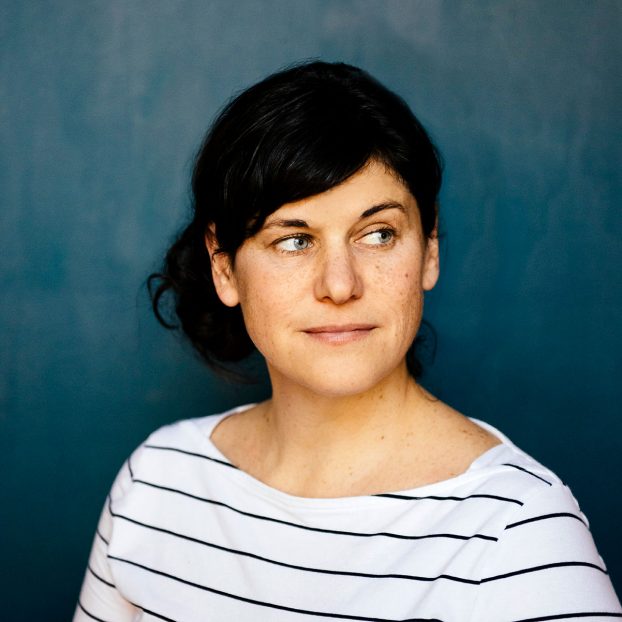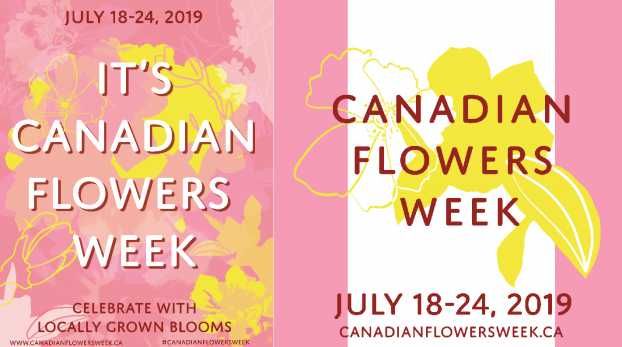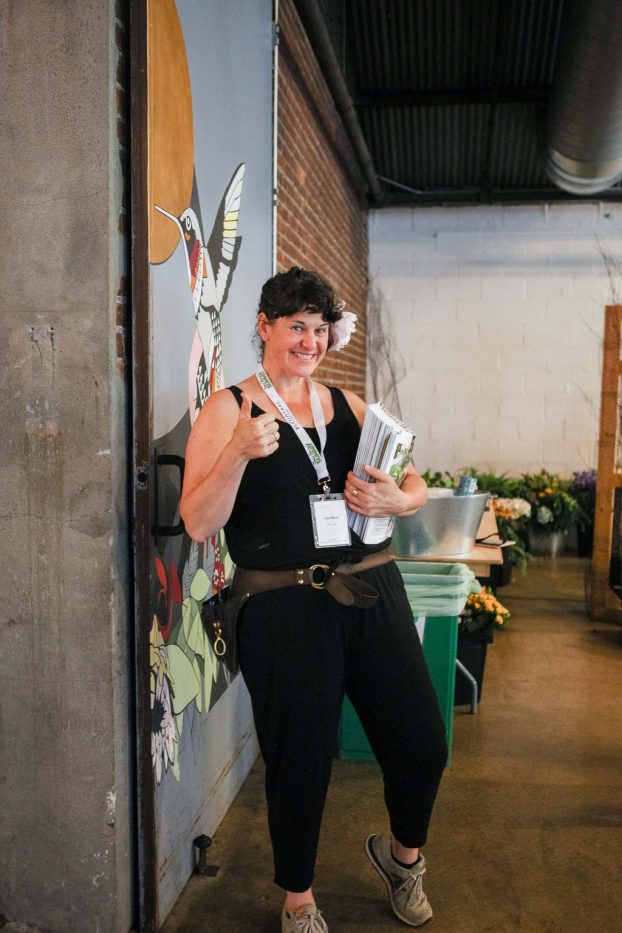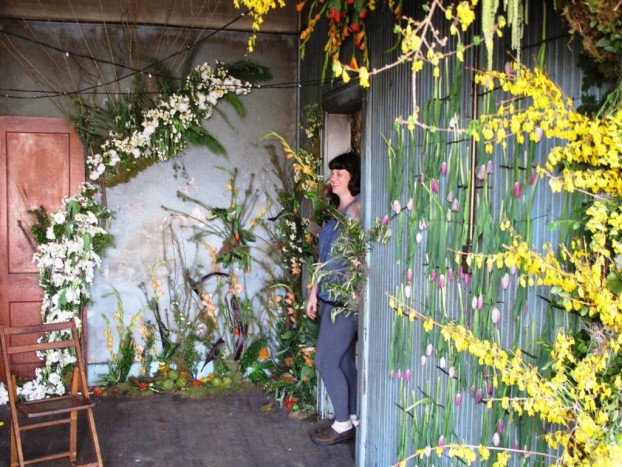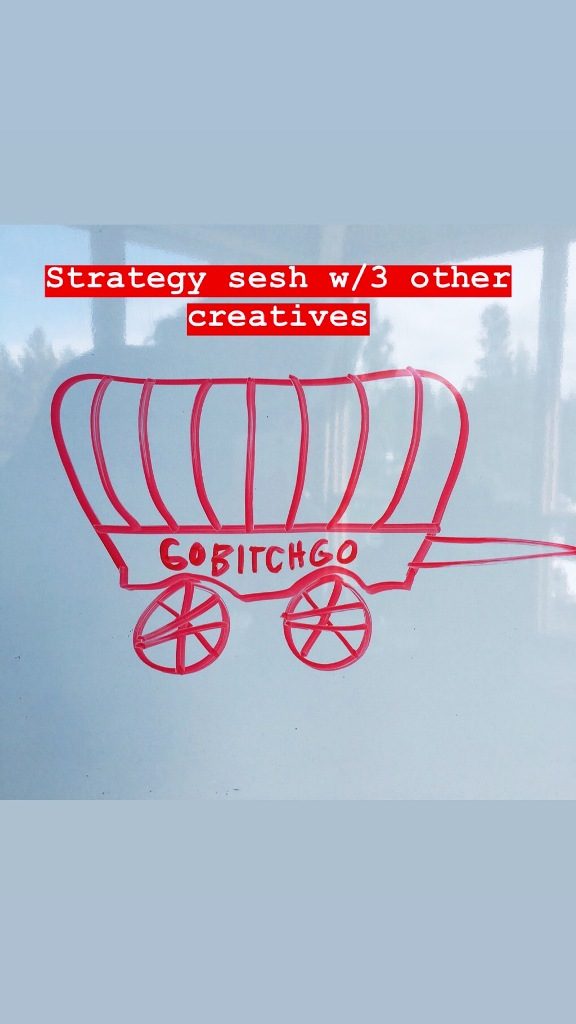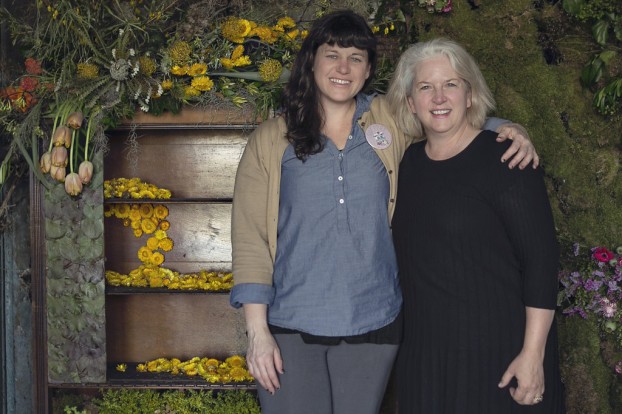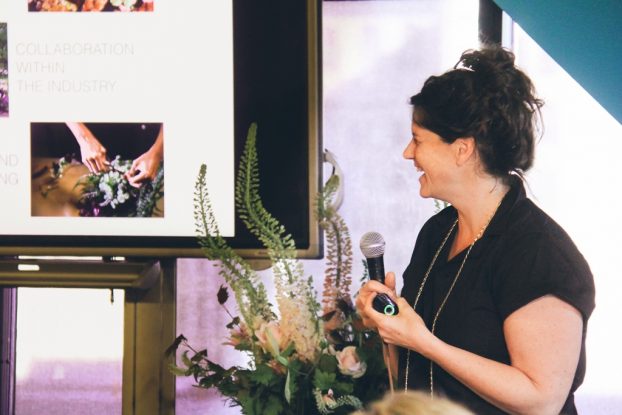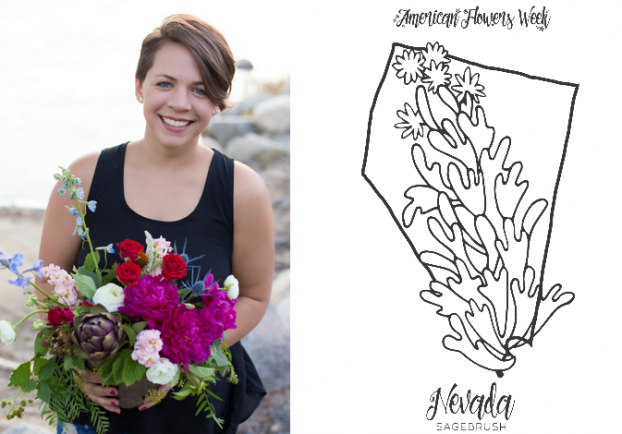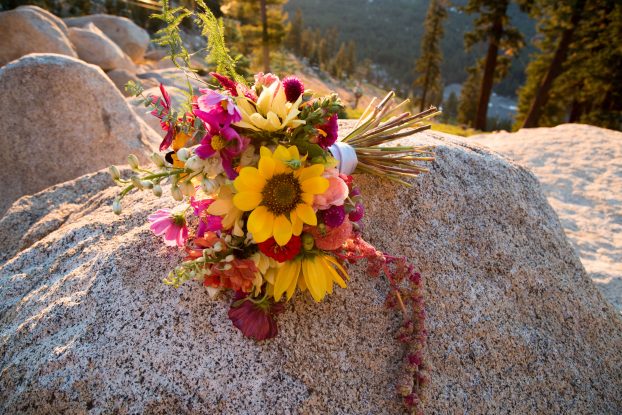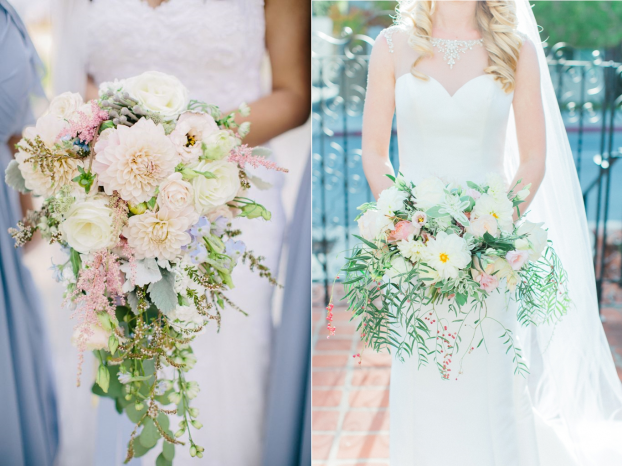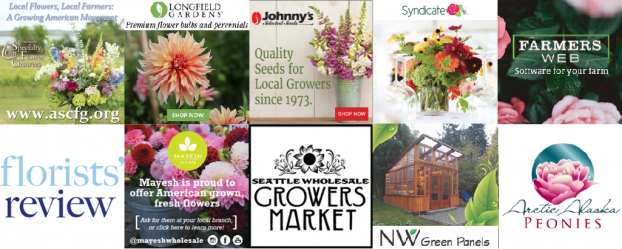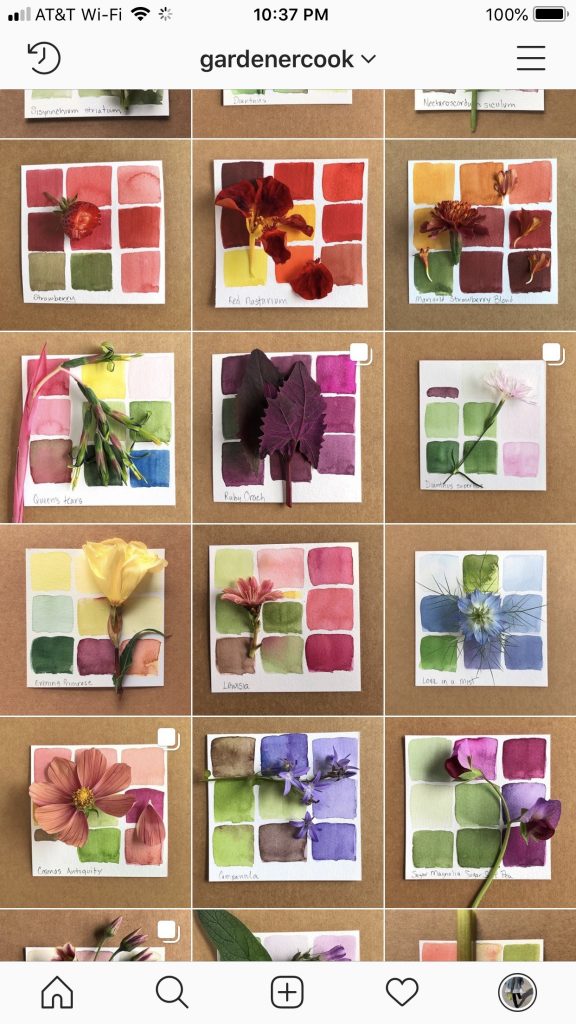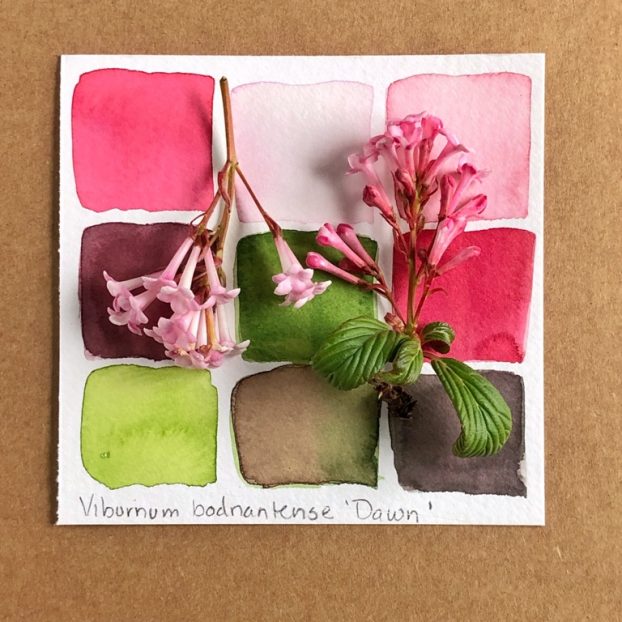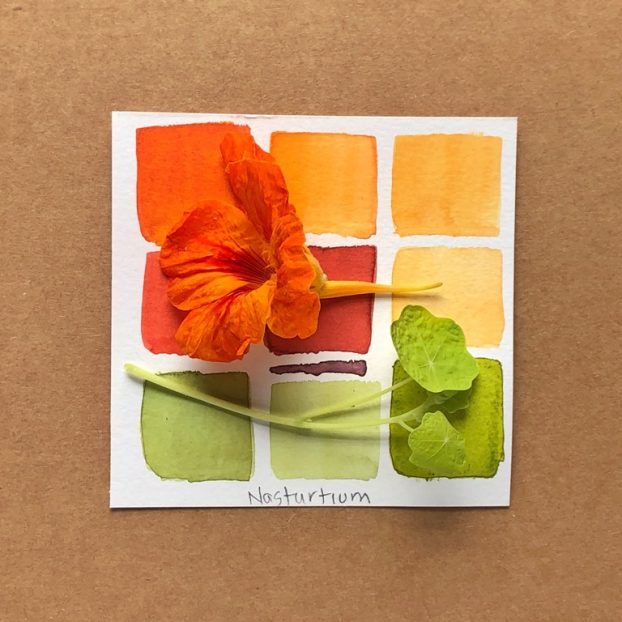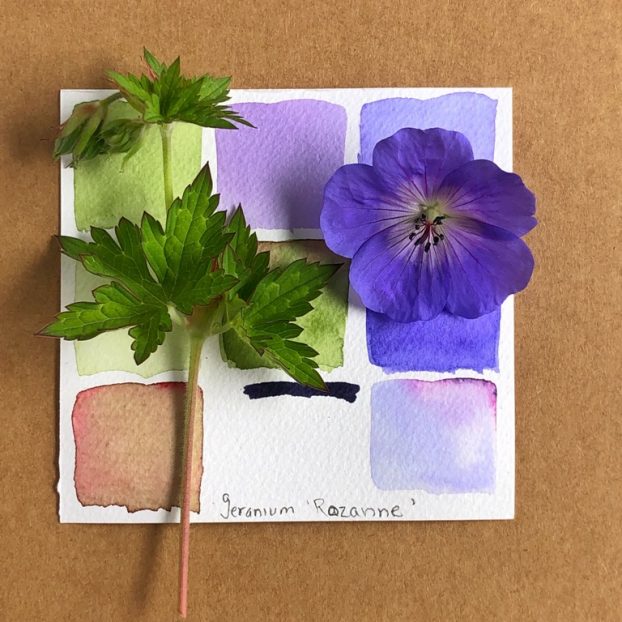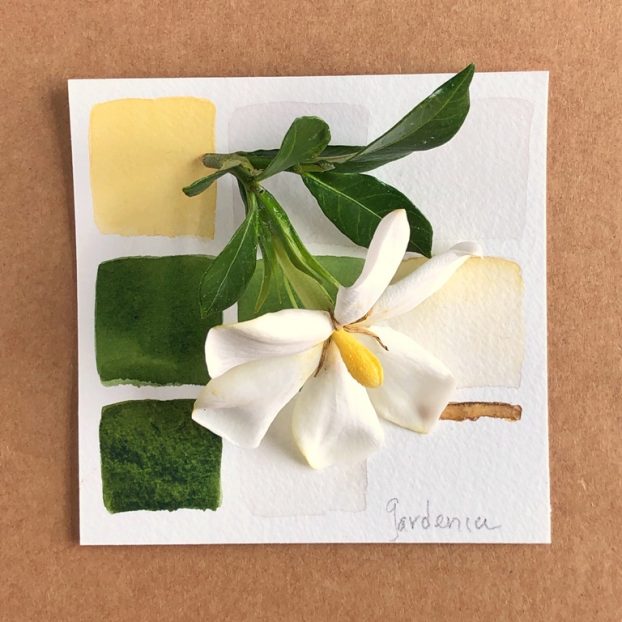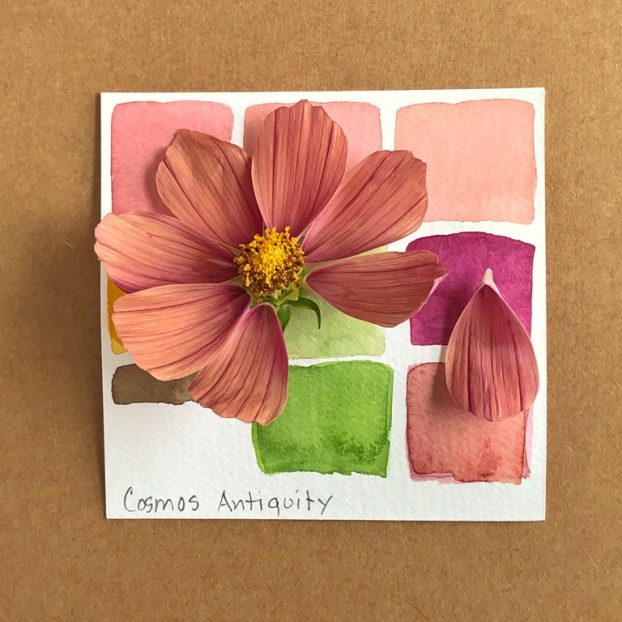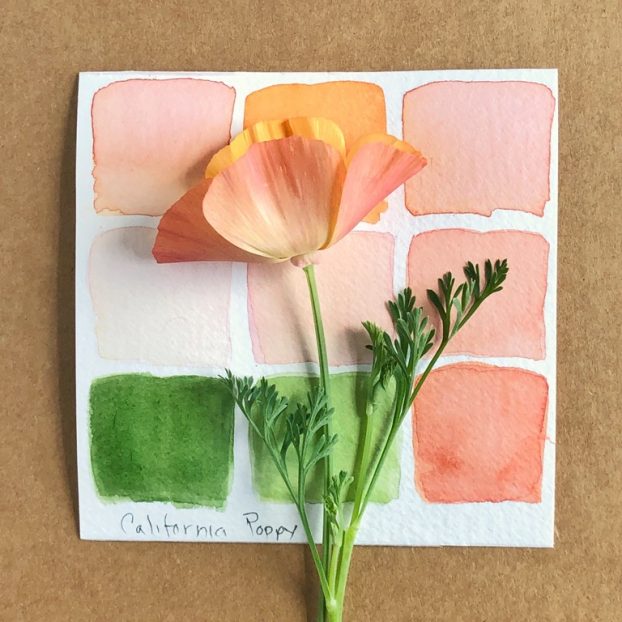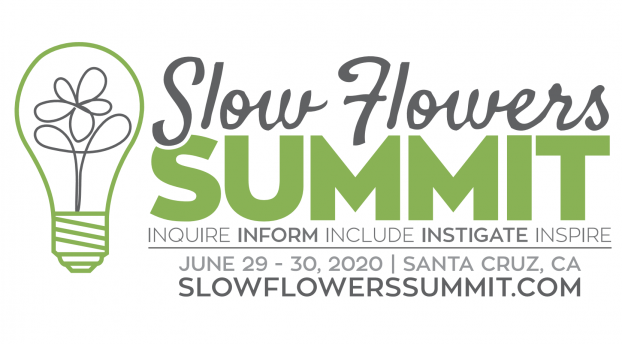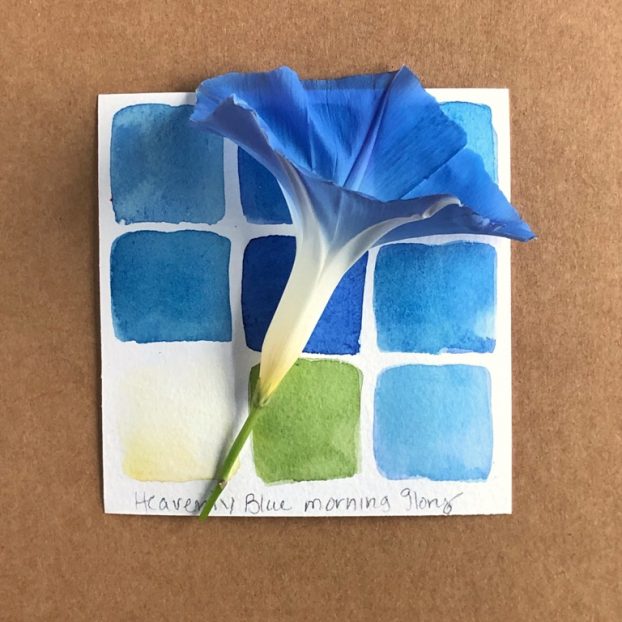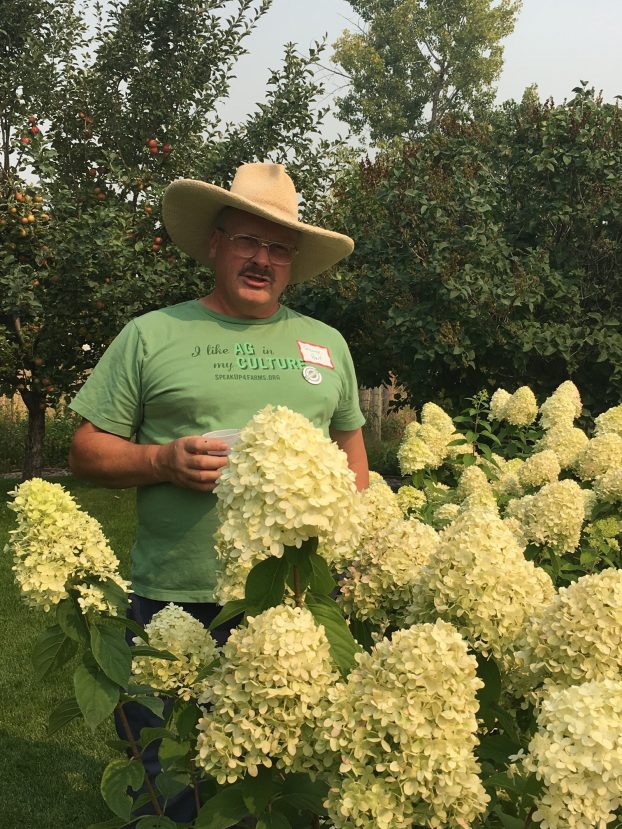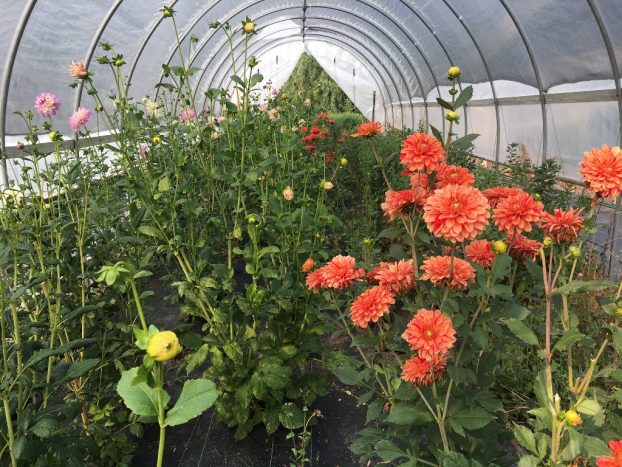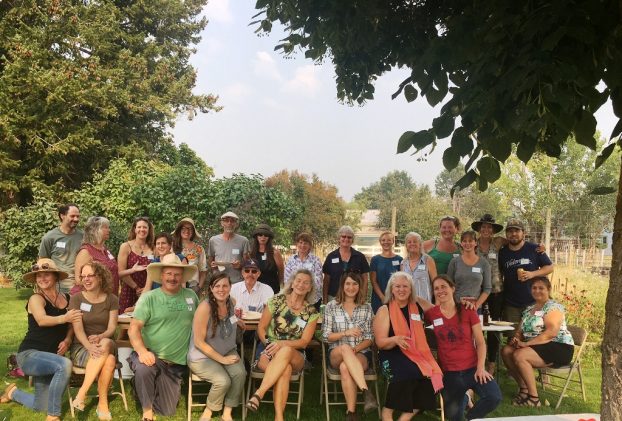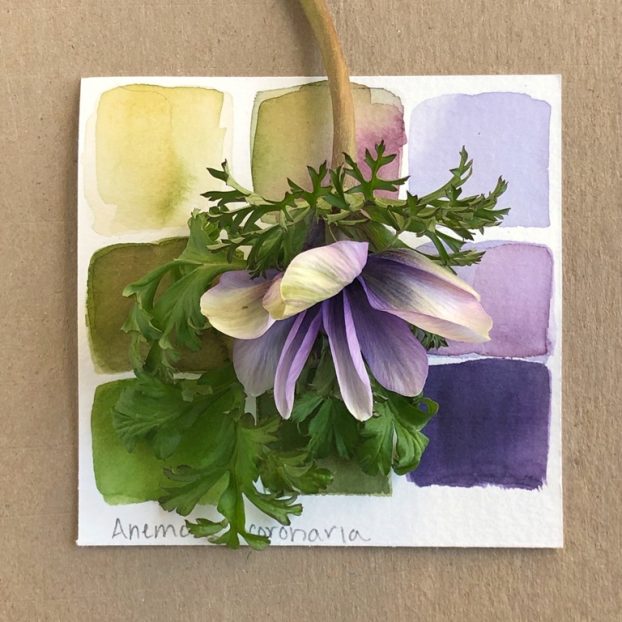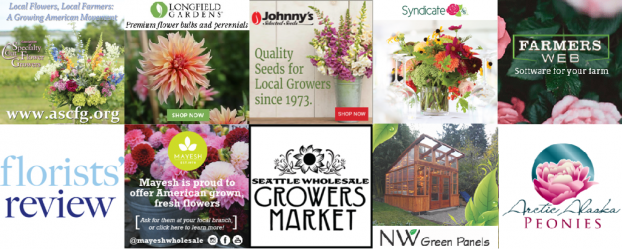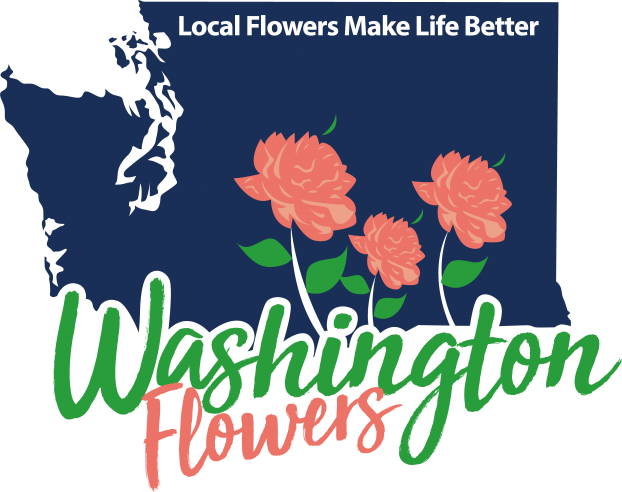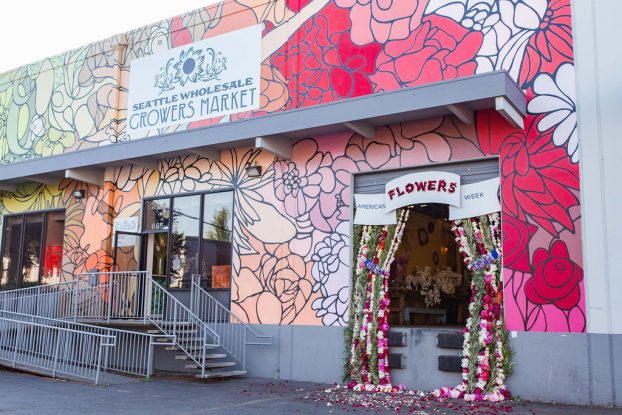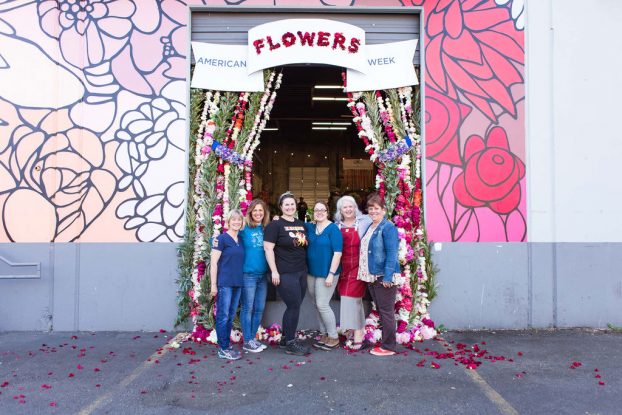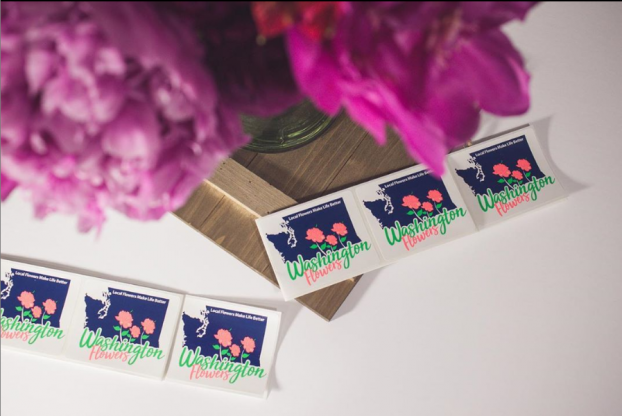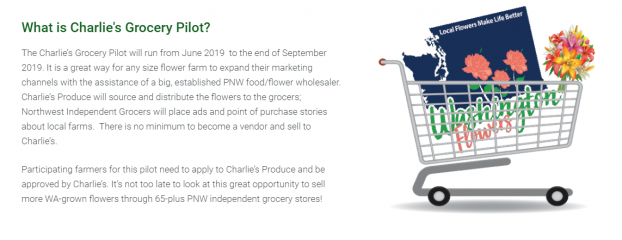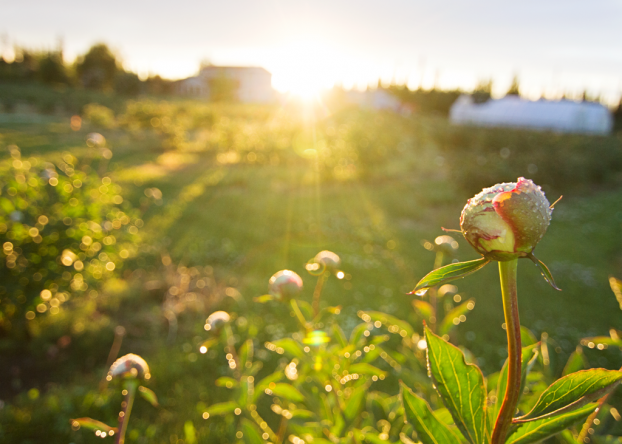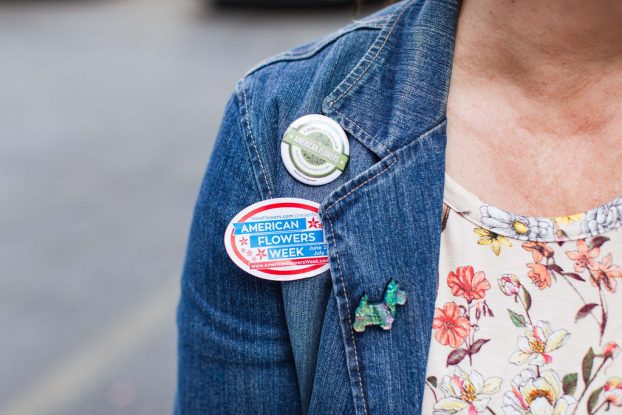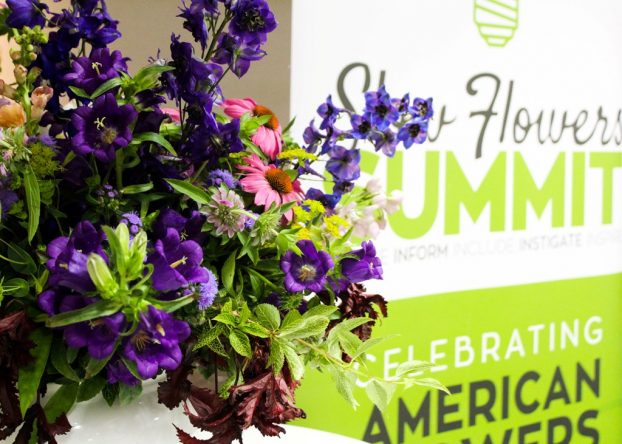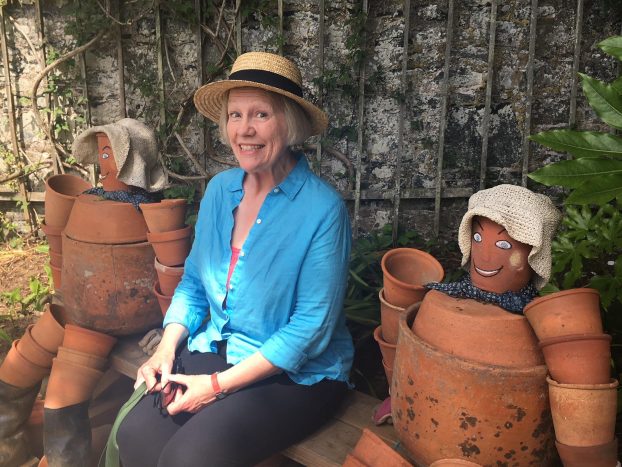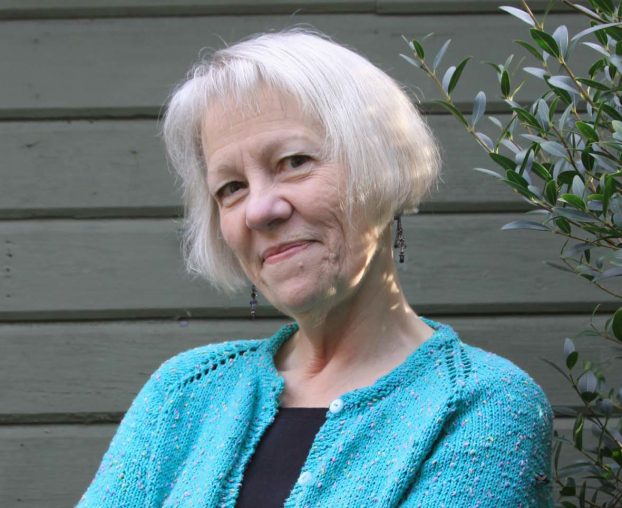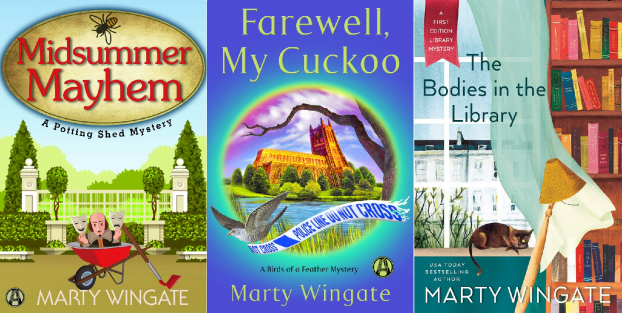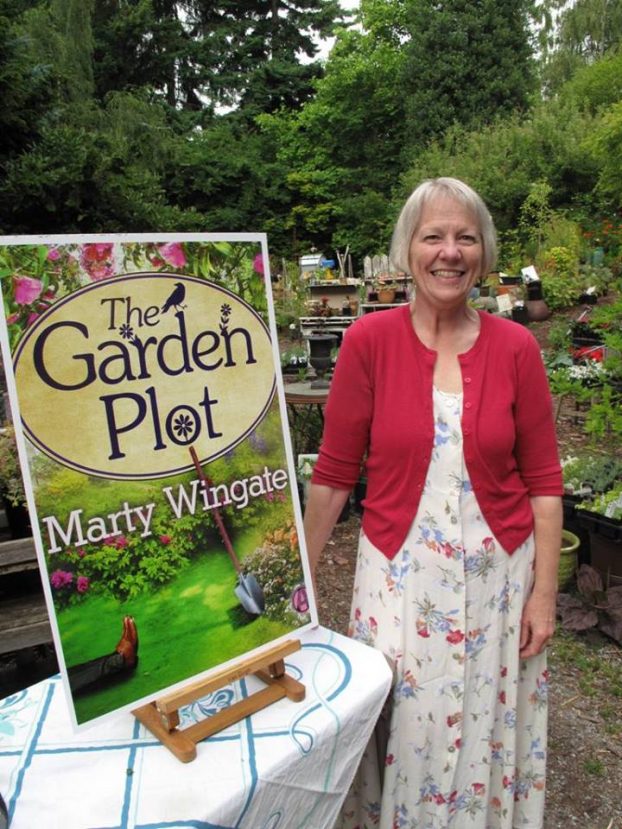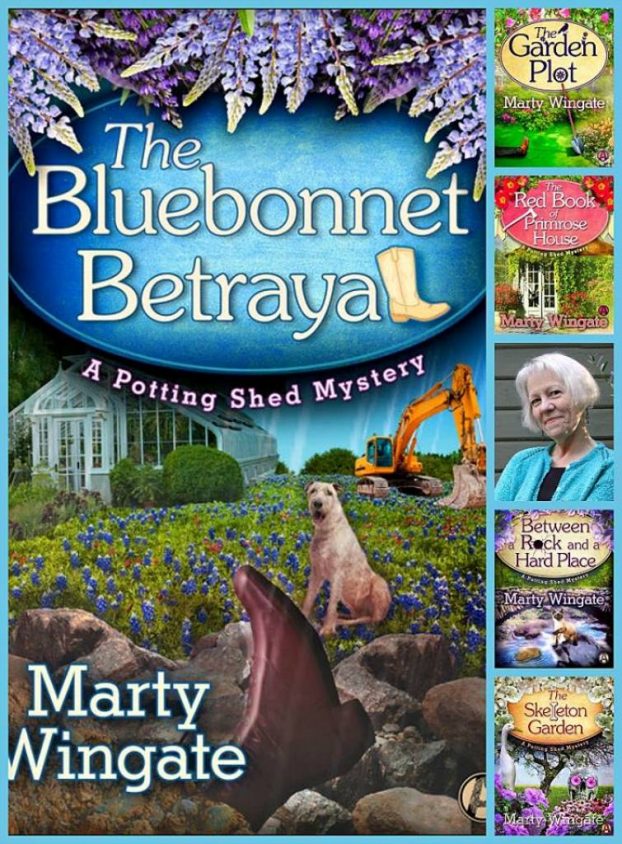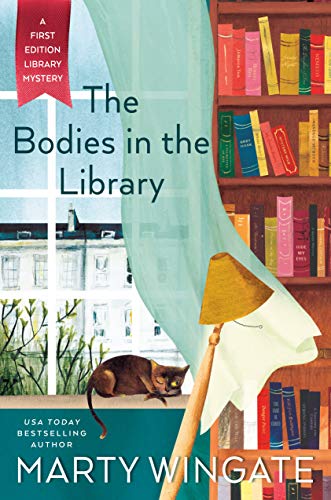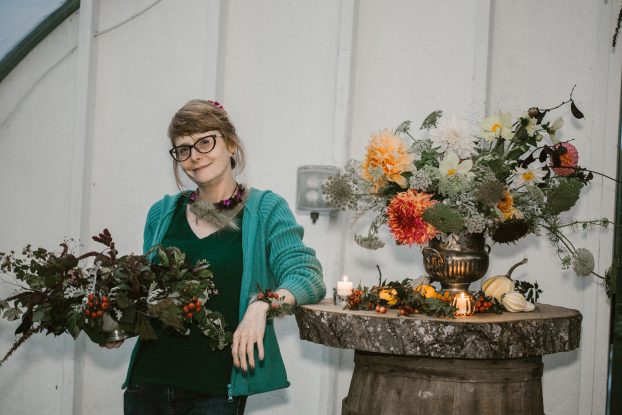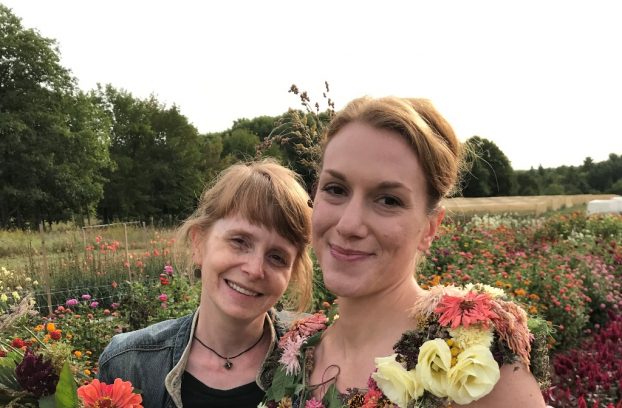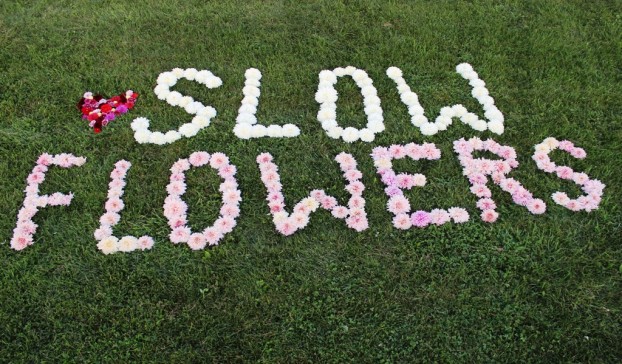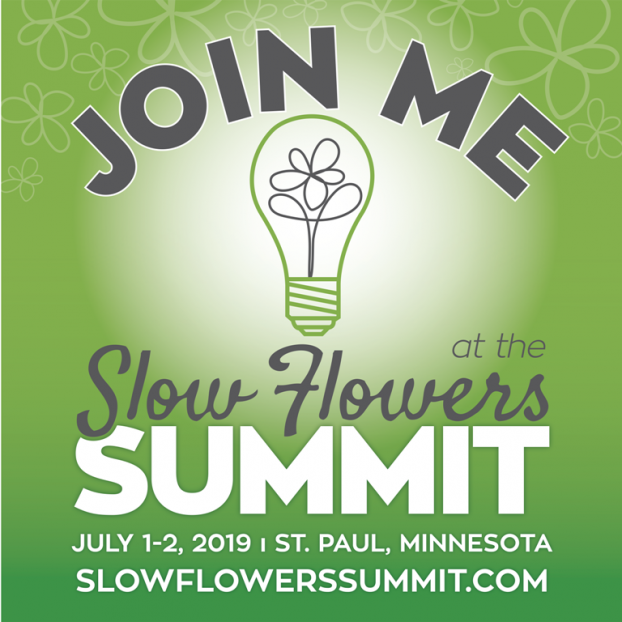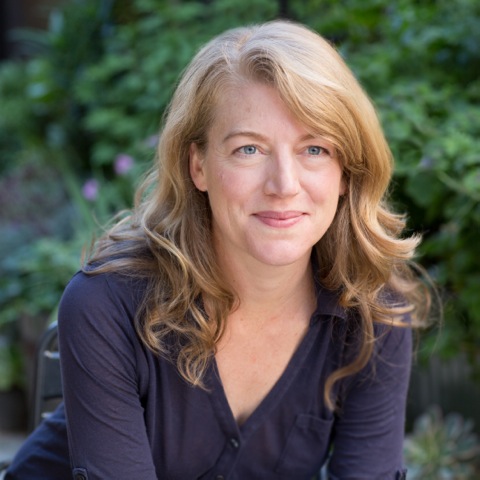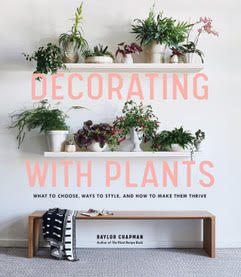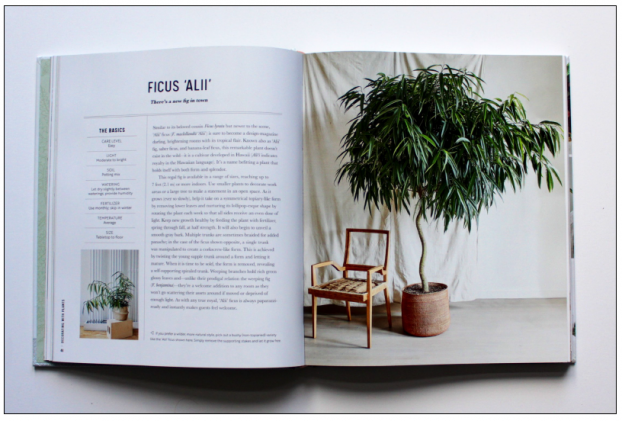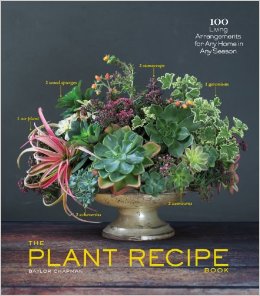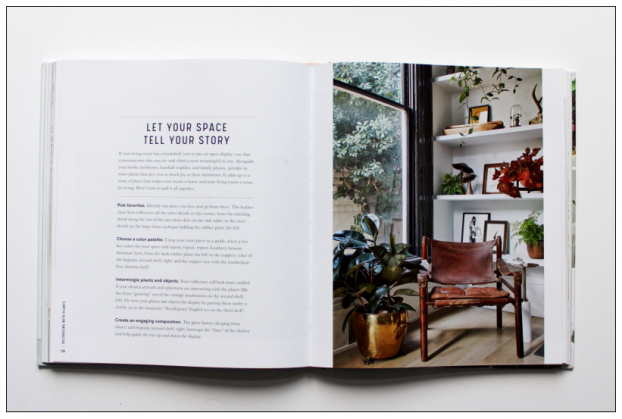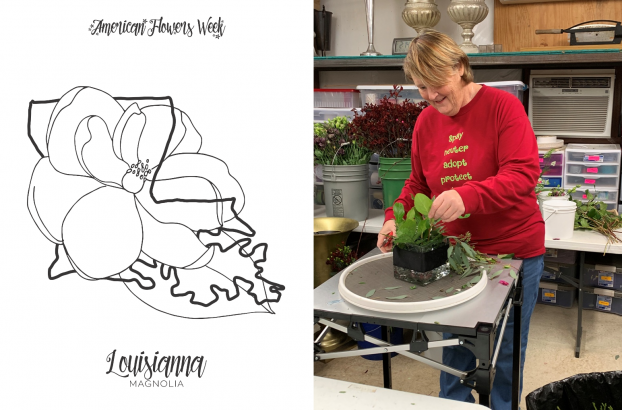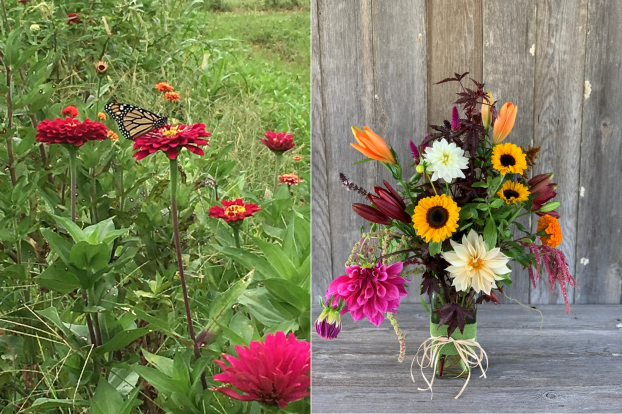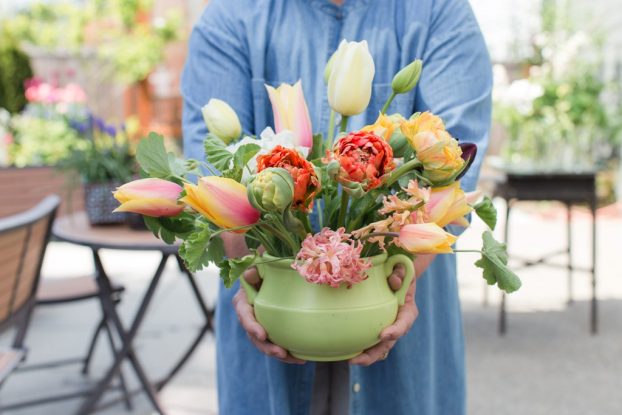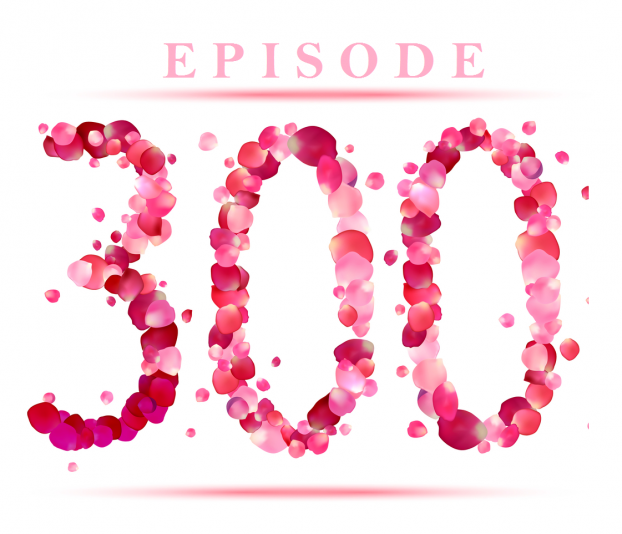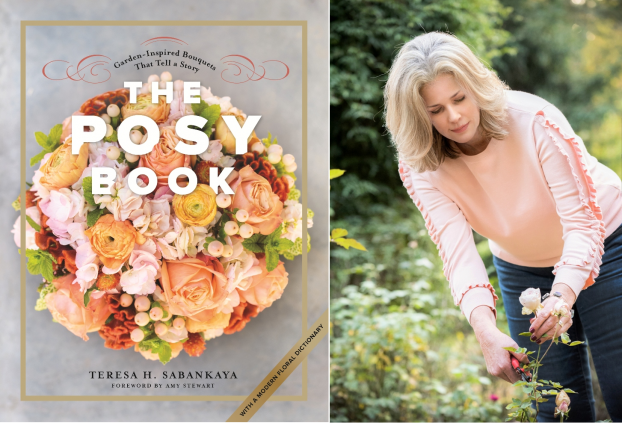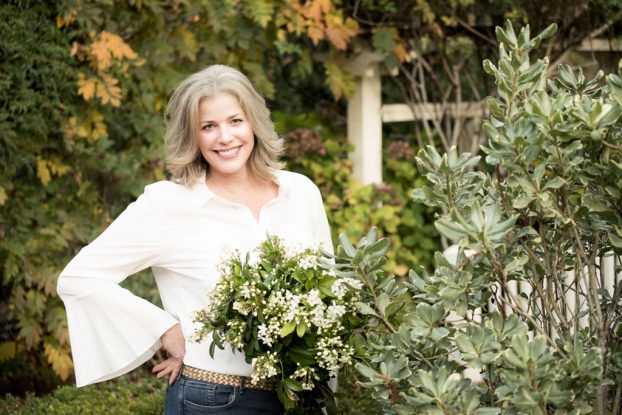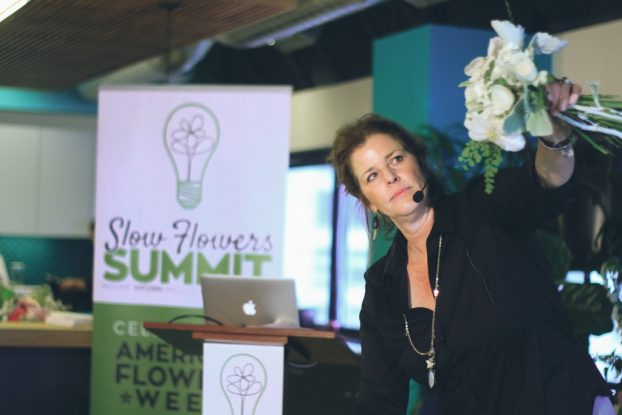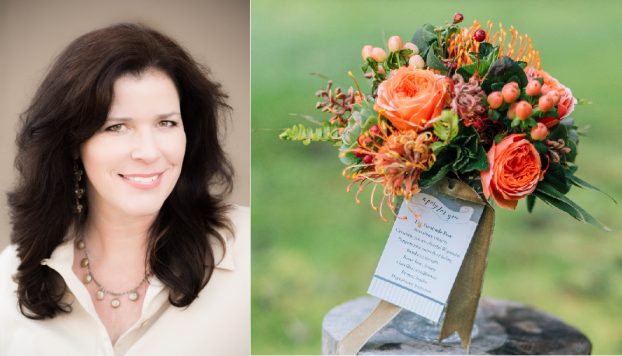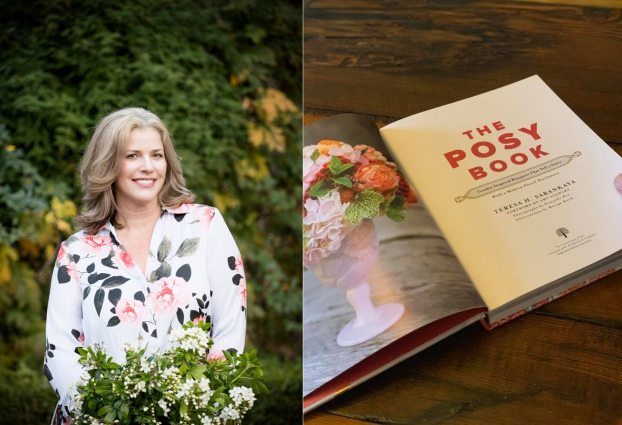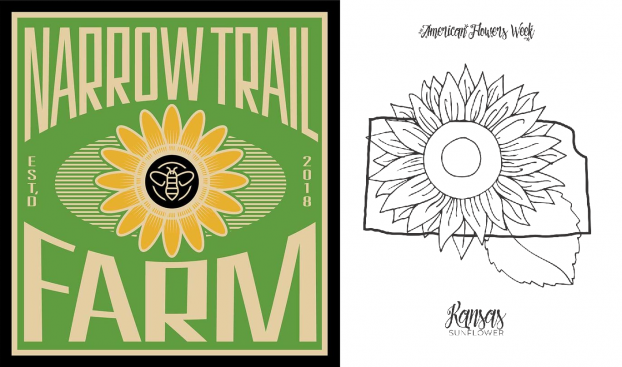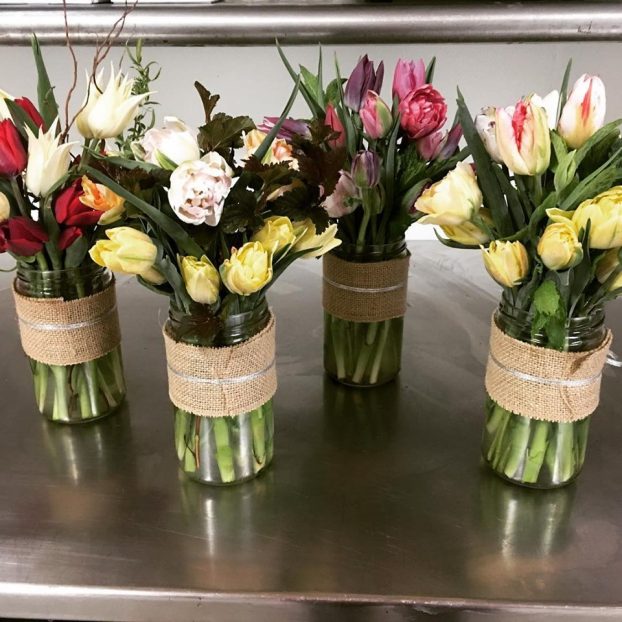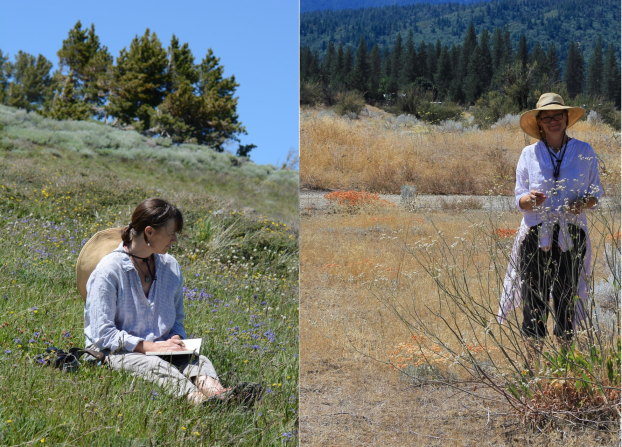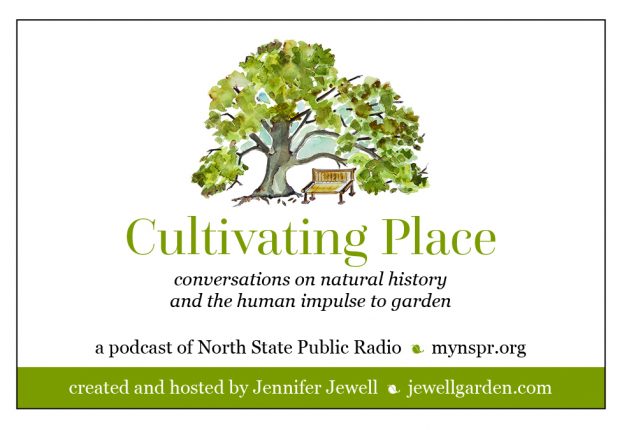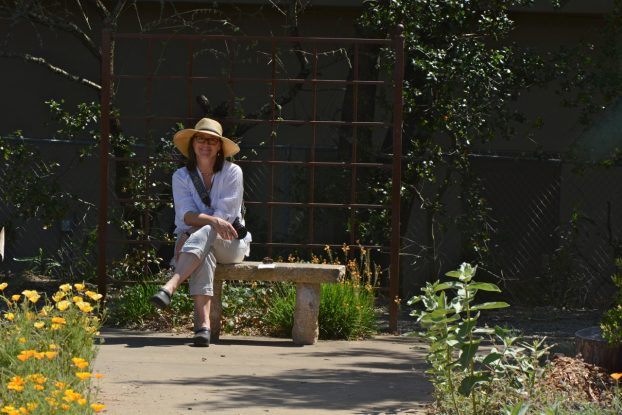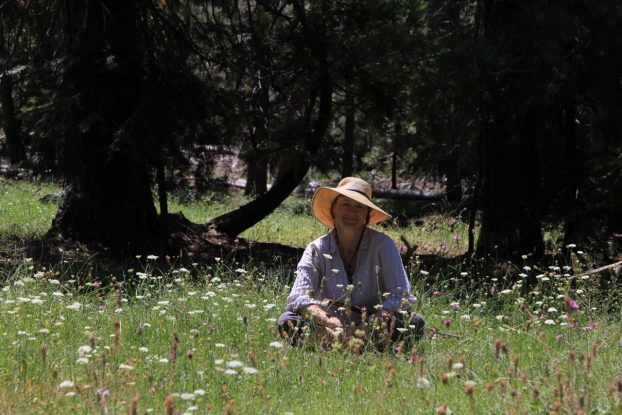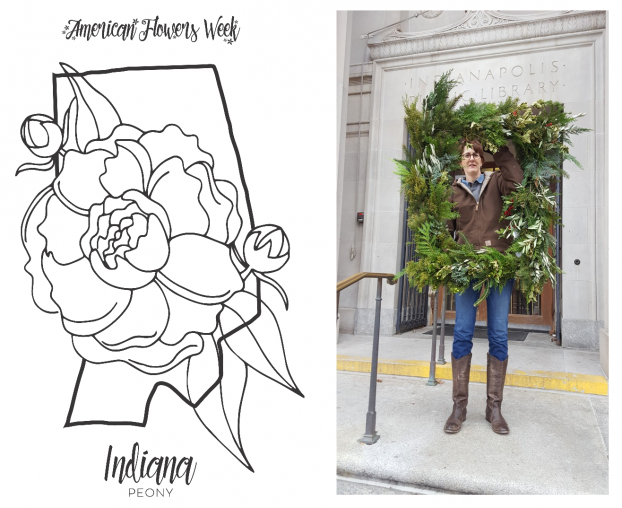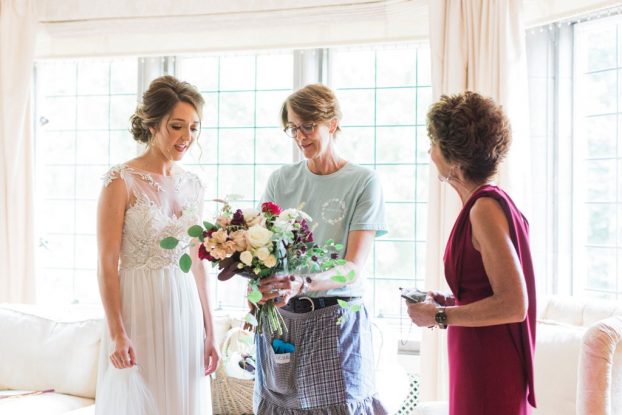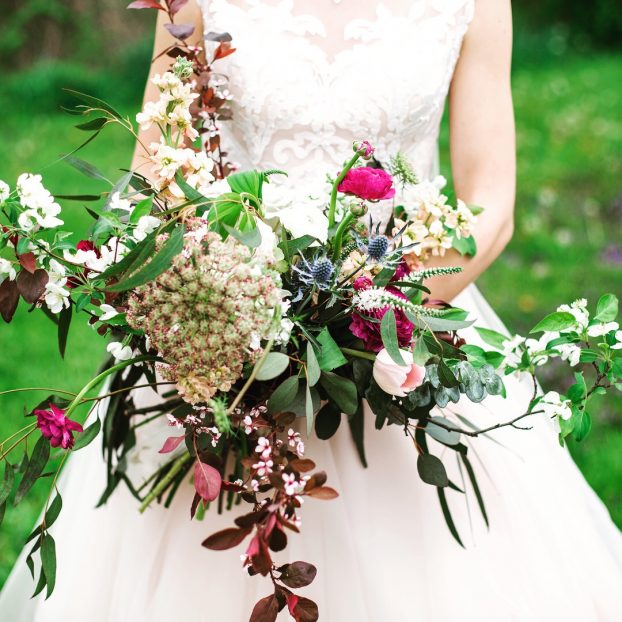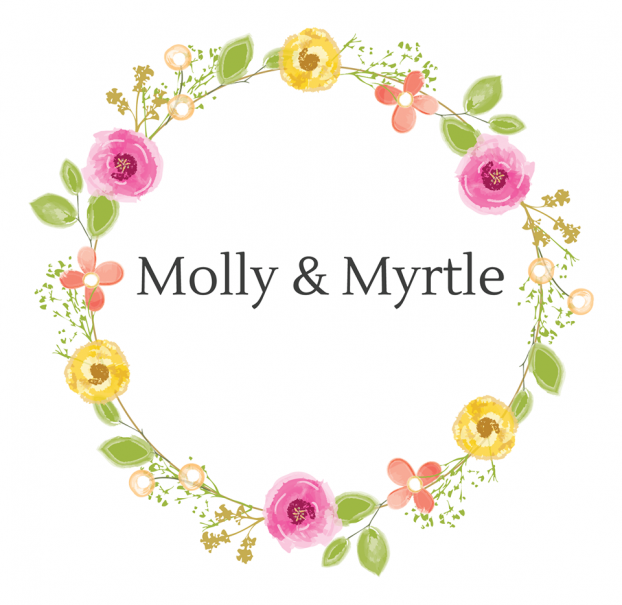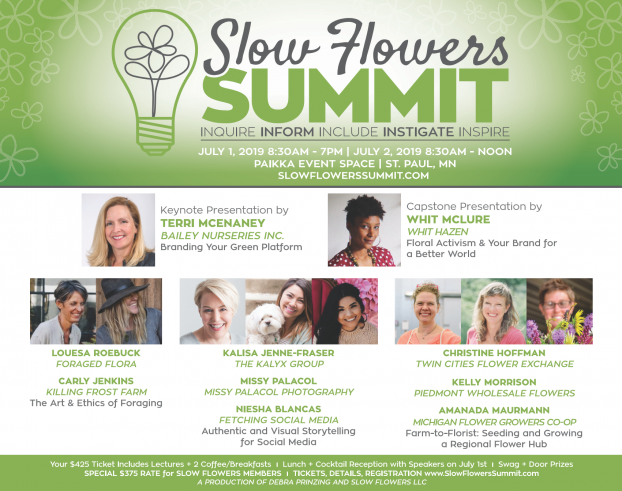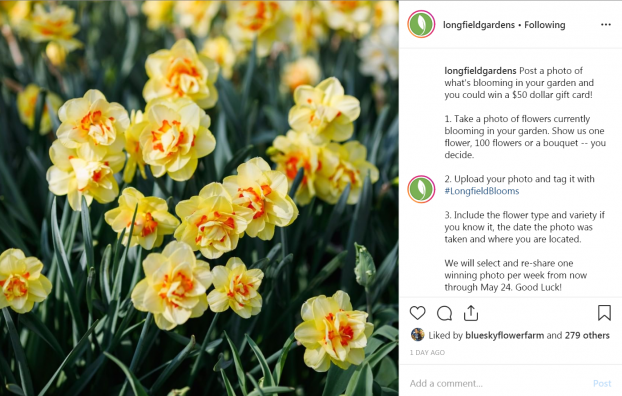Podcast: Play in new window | Download
Subscribe: Apple Podcasts | Podcast Index | RSS | More
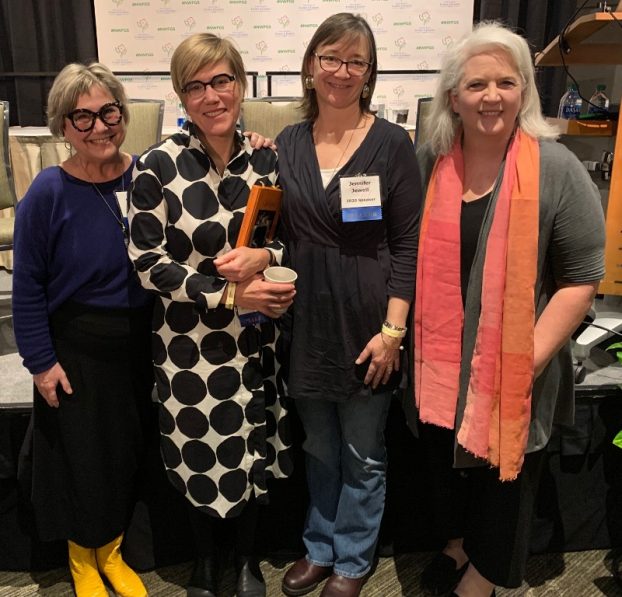
Jennifer Jewell—Creator and host of the public radio program (and podcast) Cultivating Place, is a past guest of this podcast.
Now, she is also an author and is on tour to promote her book, The Earth in Her Hands, which has the subtitle: 75 Extraordinary Women Working in the World of Plants.
This past week, Jennifer was in Seattle to speak at the Northwest Flower & Garden Festival and, among other appearances, she led a panel discussion that we recorded for today’s episode.
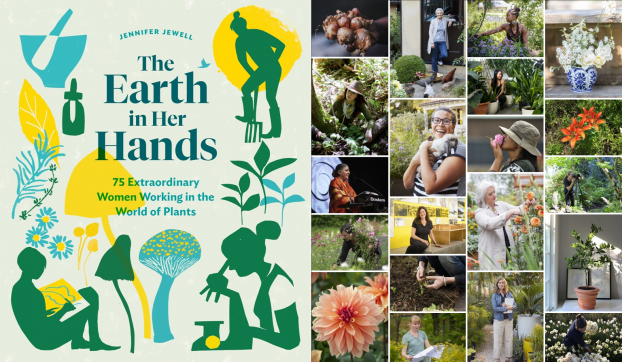
In writing The Earth in Her Hands, Jennifer learned how the women profiled creatively navigated the challenging ideal of work-life balance. The main lesson? Balance is not a destination but an ongoing and highly dynamic process.
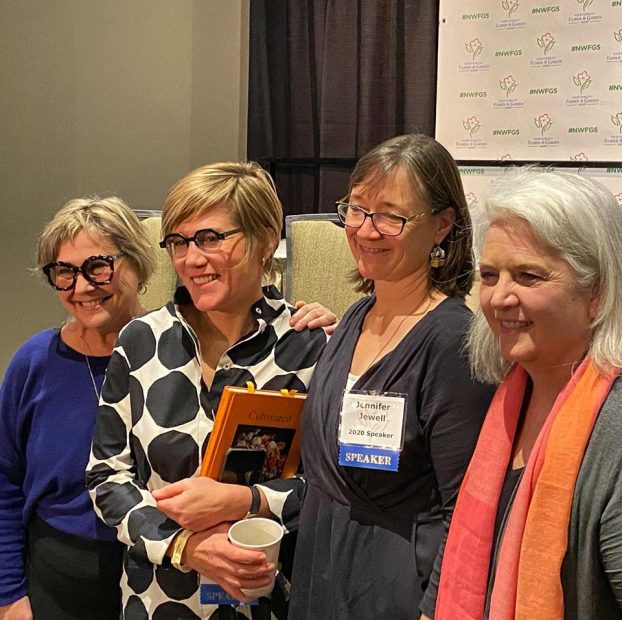
In the panel, of which I was a part, Jennifer focused our conversation on many common challenges, coping mechanisms, and solutions that follow women through their careers in the plant world.
Along with me, the panel included two other past guests of this podcast, so the voices and personalities may be familiar to you. You’ll also hear designer and author Christin Geall, of Cultivated (who I invited on the podcast just a few weeks ago), and Lorene Edwards Forkner, author, artist, and Seattle Times garden columnist, and creator of the #seeingcolorinthegardenproject.
These women graciously agreed to this recording and I’ll just jump right in and let you listen as if you were in the Northwest Flower & Garden Festival audience last week.
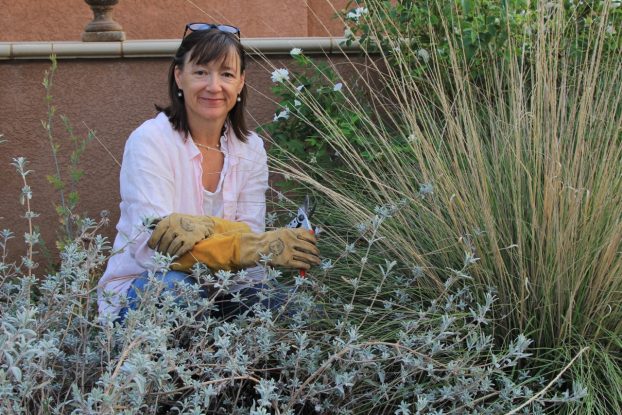
Jennifer Jewell is host of the national award-winning, weekly public radio program and podcast, Cultivating Place: Conversations on Natural History & the Human Impulse to Garden, Jennifer Jewell is a gardener, garden writer, and gardening educator and advocate.
Particularly interested in the intersections between gardens, the native plant environments around them, and human culture, she is the daughter of garden and floral designing mother and a wildlife biologist father. Jennifer has been writing about gardening professionally since 1998, and her work has appeared in Gardens Illustrated, House & Garden, Natural Home, Old House Journal, Colorado Homes & Lifestyles, and Pacific Horticulture. She worked as Native Plant Garden Curator for Gateway Science Museum on the campus of California State University, Chico, and lives and gardens in Butte County, California.
Listen to Jennifer Jewell on the Slow Flowers Podcast (Episode 397) April 2019
Cultivating Place on Instagram
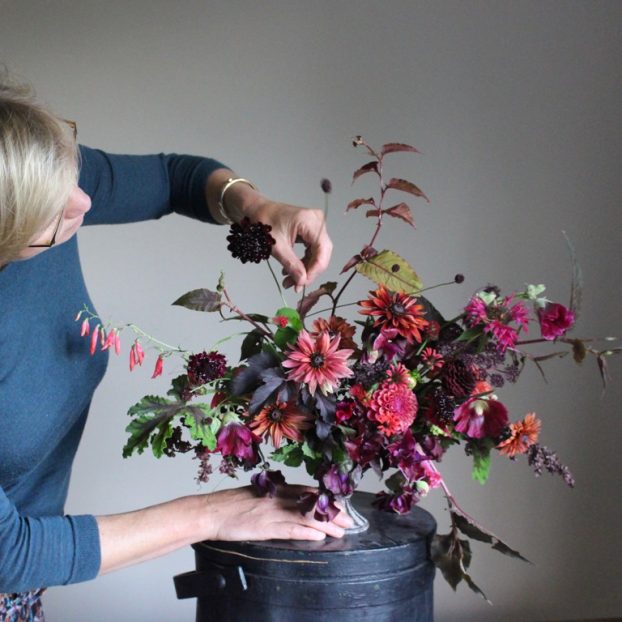
Christin Geall lives on Vancouver Island, along the western edge of Canada. She is a gardener, designer, writer and teacher who grows flowers and shares her designs through Cultivated by Christin, a creative studio launched in 2015.
Christin’s eclectic background includes pursuits that are equal parts physical and intellectual. She apprenticed on a Martha’s Vineyard herb farm, interned at the Royal Botanic Gardens, Kew, and homesteaded on a remote island in British Columbia. Academic studies in ethnobotany, environmental science and a creative writing MFA led to editorships, university-level teaching and a regular gardening column for local newspapers.
Today, Christin’s artistic focus centers around her urban flower farm-design studio in USDA Zone 8, the tiny hub of a multifaceted floral business.
Listen to Christin Geall on the Slow Flowers Podcast (Episode 440) February 2020
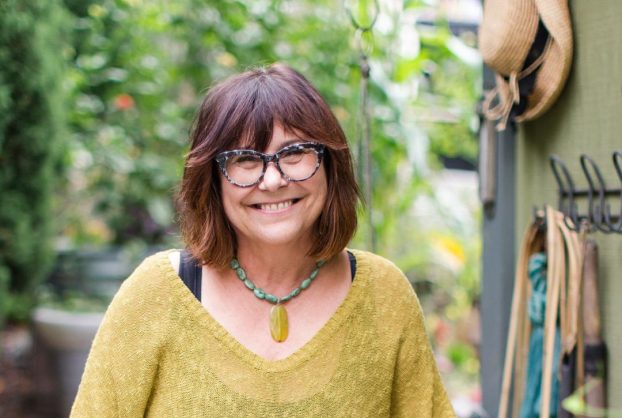
Lorene Edwards Forkner is a columnist for the Seattle Times weekly gardening column called GROW. She is author of five garden books, including The Timber Press Guide to Vegetable Gardening: Pacific Northwest, and Handmade Garden Projects, bestselling titles from Timber Press.
Lorene owned a popular and beloved boutique specialty nursery in Seattle for more than a decade, called Fremont Gardens; she has served on the boards of a number of horticultural organizations, has edited a horticulture journal and is the designer of two gold medal display gardens at the Northwest Flower and Garden Festival.
Most recently, Lorene’s creative life can be found on Instagram, where @gardenercook she shares a series called “Seeing Color in the Garden.” She started this project on April 3, 2018 as part of #the100dayproject as #100DaysofSeeingColorintheGarden. She continued her series with #Another100 DaysofSeeingColorintheGarden.
Listen to Lorene Edwards Forkner on the Slow Flowers Podcast (Episode 409) July 2019
Thank you so much for joining today’s episode featuring Jennifer Jewell and two women, who along with me are featured in The Earth in Her Hands, Christin Geall and Lorene Edwards-Forkner.
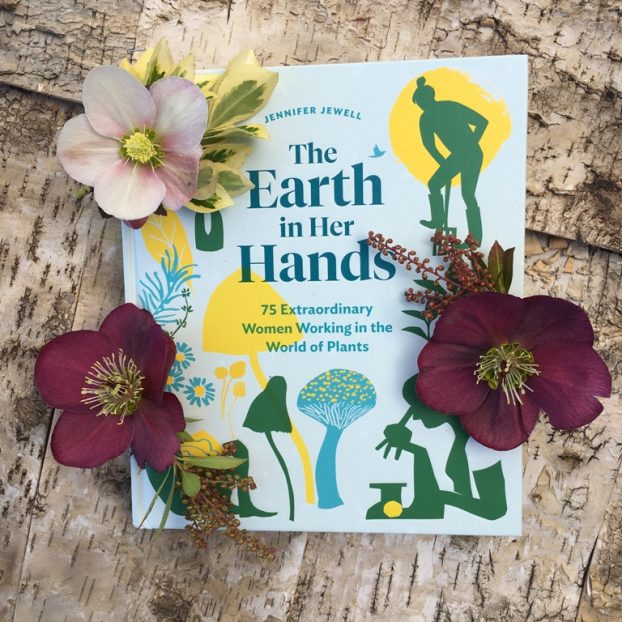
As a special bonus, we’re giving away a copy of The Earth in Her Hands, courtesy of Timber Press, Jennifer’s publisher.
To enter, please leave a comment below about an Extraordinary Woman who influenced your personal relationship with plants. We’ll draw one recipient from among the posted comments on Sunday, March 8th and announce the winner in our March 11th episode. Please note: this giveaway is open to U.S. and Canadian entrants.


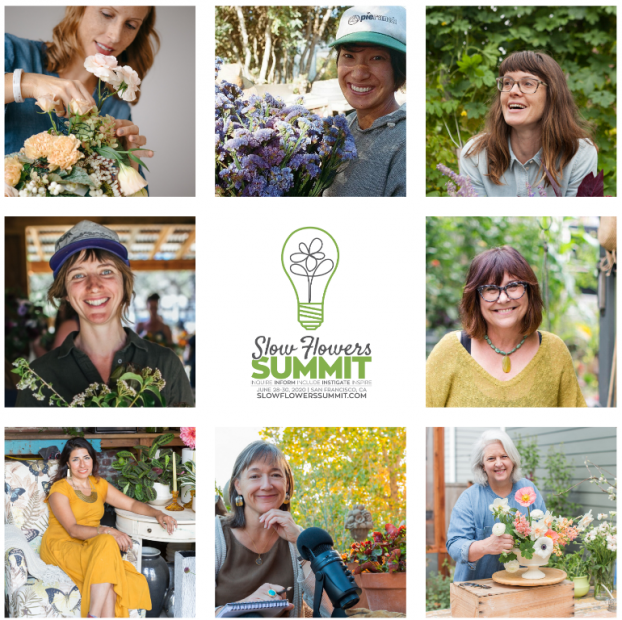
If you liked the subject of this episode, you’re invited to dig deeper with two of the panelists because they are coming to the Slow Flowers Summit in the SF Bay Area at Filoli- the historic garden and home that is hosting us on June 28-29th. Jennifer Jewell will be our Slow Flowers Summit capstone speaker – and she will speak more expansively on women’s role in shaping our plant world and beyond, as well as sign copies of her new book. Lorene Edwards Forkner will also be one of our Slow Flowers Summit presenters and I’m so excited for you to experience seeing color in the garden through her eyes as you develop your own sensibility and observational skills, learning from color in the garden — from the landscape to the centerpiece.
It will be a special experience and I can’t wait for you to join us!


The Slow Flowers Podcast has been downloaded more than 583,000 times by listeners like you. Thank you for listening, commenting and sharing – it means so much.
As our movement gains more supporters and more passionate participants who believe in the importance of the American cut flower industry, the momentum is contagious. I know you feel it, too. I value your support and invite you to show your thanks and with a donation to support my ongoing advocacy, education and outreach activities. You can find the donate button in the column to the right.
THANK YOU TO OUR SPONSORS
Florists’ Review magazine. I’m delighted to serve as Contributing Editor for Slow Flowers Journal, found in the pages of Florists’ Review. It’s the leading trade magazine in the floral industry and the only independent periodical for the retail, wholesale and supplier market. Take advantage of the special subscription offer for members of the Slow Flowers Community.
Longfield Gardens provides home gardeners with high quality flower bulbs and perennials. Their online store offers plants for every region and every season, from tulips and daffodils to dahlias, caladiums and amaryllis. Check out the full catalog at Longfield Gardens at longfield-gardens.com.
Mayesh Wholesale Florist. Family-owned since 1978, Mayesh is the premier wedding and event supplier in the U.S. and we’re thrilled to partner with Mayesh to promote local and domestic flowers, which they source from farms large and small around the U.S. Learn more at mayesh.com.
Association of Specialty Cut Flower Growers. Formed in 1988, ASCFG was created to educate, unite, and support commercial cut flower growers. It mission is to help growers produce high-quality floral material, and to foster and promote the local availability of that product. Learn more at ascfg.org.
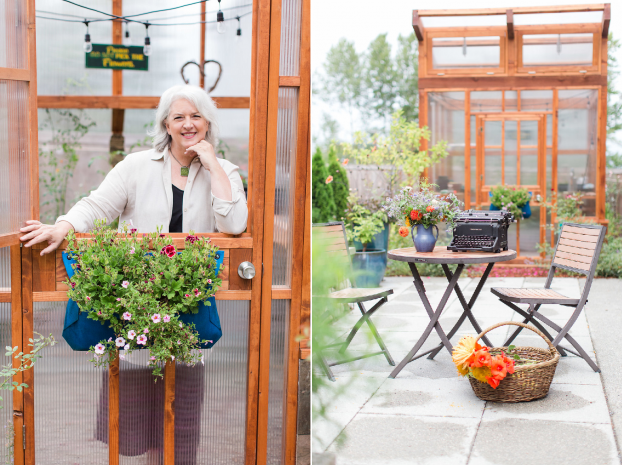
I’m Debra Prinzing, host and producer of the Slow Flowers Podcast. Next week, you’re invited to join me in putting more American grown flowers on the table, one vase at a time. And If you like what you hear, please consider logging onto iTunes and posting a listener review.
The content and opinions expressed here are either mine alone or those of my guests alone, independent of any podcast sponsor or other person, company or organization.
The Slow Flowers Podcast is engineered and edited by Andrew Brenlan. Learn more about his work at soundbodymovement.com.
Music Credits:
Gaena; Glass Beads by Blue Dot Sessions
http://www.sessions.blue
Lovely by Tryad
http://tryad.bandcamp.com/album/instrumentals
http://creativecommons.org/licenses/by-sa/3.0/
In The Field; Paper Wings
Music from:
audionautix.com









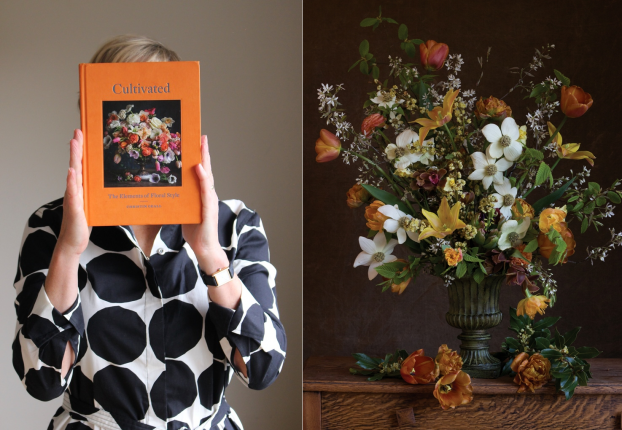
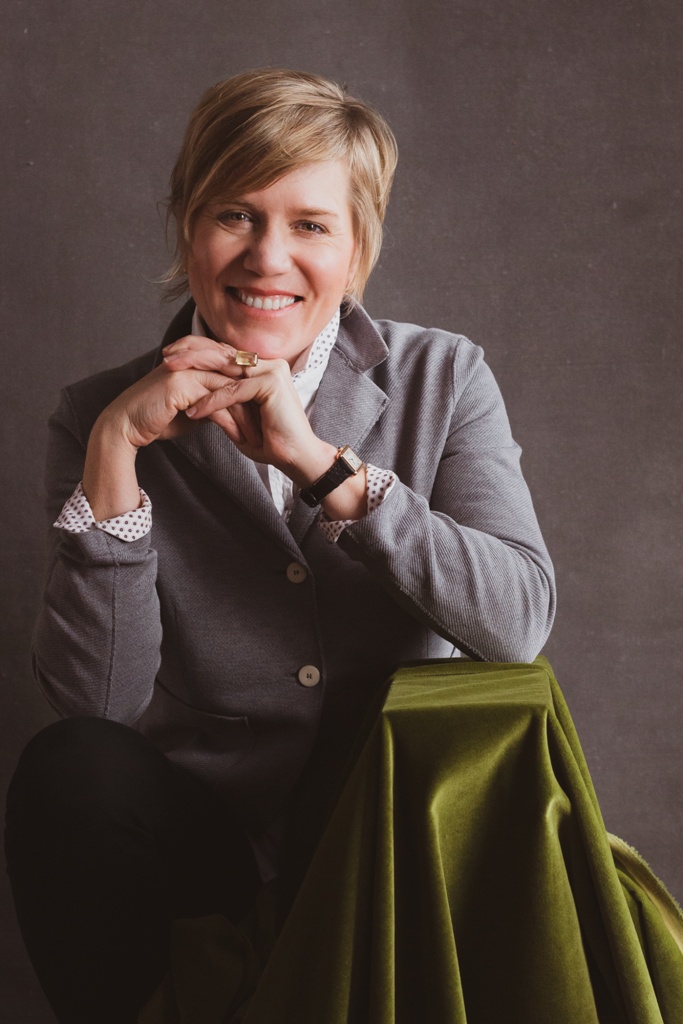 On Vancouver Island, along the western edge of Canada, gardener, designer, writer and teacher Christin Geall grows flowers and shares her designs through
On Vancouver Island, along the western edge of Canada, gardener, designer, writer and teacher Christin Geall grows flowers and shares her designs through 